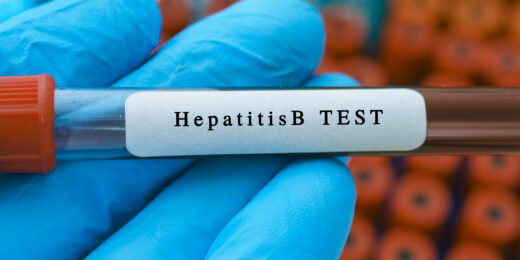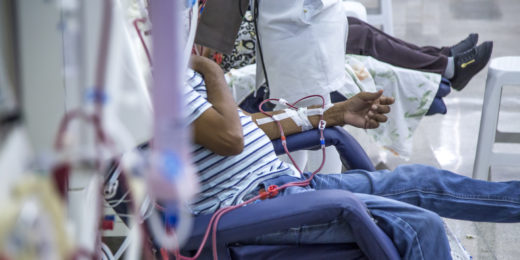New CDC recommendation for universal hepatitis B screening could significantly reduce liver cancer in Asians and Black people, researchers say.
Category: Hepatitis
We are Stanford Med: #ThisIsMyWhy with Asma Dahir
In the We Are Stanford Med series, students and postdocs share their motivations and passions behind their careers.
Pap smears, be gone? Using menstrual blood to detect HPV
Researchers have created a menstrual pad that can passively help detect HPV, potentially offering a screening method other than pap smears.
Preparing for the viruses we’ve yet to meet
Researchers at Stanford Medicine are working to develop antivirals to stop the current pandemic and prevent ones.
Protecting at-risk patients by tracking COVID-19 antibodies
According to a study, antibodies circulating after SARS-CoV-2 vaccinations wane rapidly in people who are receiving dialysis.
COVID-19 can infect the inner ear
Researchers say anyone with new on-set hearing loss, tinnitus or vertigo, with exposure to COVID-19, should be tested and monitored.
Bill, supported by Stanford doctor, guards against hepatitis
A Stanford Medicine doctor helped write and support legislation to enable free hepatitis B and C screenings for those who request it.
Universal hepatitis B screenings can save lives and cut costs, study says
Stanford researchers find that screening all adults in the United States one time for hepatitis B could save money and lives.
Hepatitis C: All adults in U.S. — under 80 — should be tested
Hepatitis C has become so widespread that experts are calling on doctors to screen all adults 18 to 79, even those with no known risk factors or symptoms.
Stanford scientist is working to halt spread of hepatitis B
Decision scientist Mehlika Toy is working with the WHO to help eliminate the public health burden of hepatitis B by the year 2030.
Curbing hepatitis B in the United States will save lives and money, according to a new study
Targeted screening can cut hepatitis B related deaths in the U.S. by half - and save money.
Expanding hepatitis C testing to all adults is cost-effective and improves health, new study shows
Even adults who are not considered "high-risk" should be tested to reduce deaths and improve cure rates, new Stanford Health Policy research suggests.













